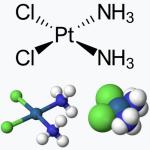As we have seen with glyphosate, IARC’s assessment, even if contradicted by many other governmental agencies, can result in the banning of compounds and billions
testicular cancer
It is difficult to find anything comforting when you are told you have cancer. Perhaps no word evokes more terror, and this is not without reason.
Testicular cancer has always been sort of an odd-ball in the world of cancer, particularly because it occurs disproportionately
The bad news is that people keep consuming products that they




